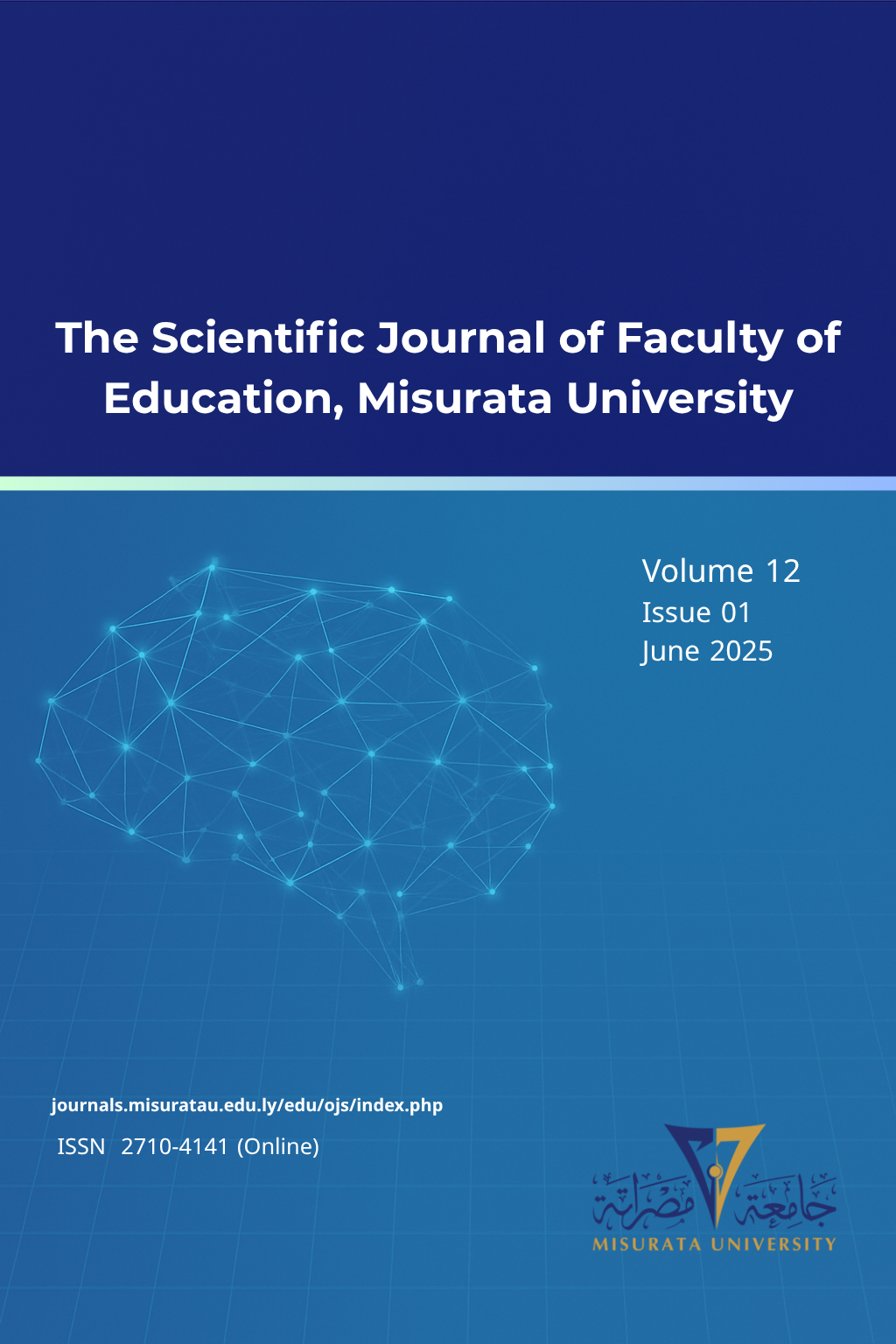The reality of Academic Advising at the College of Education, Misurata University, from the Students' Perspective in Light of Certain Variables
Keywords:
Academic Advising, Faculty of Education, Misurata UniversityAbstract
This study aims to explore the current state of academic advising for
students at the College of Education, Misurata University, from the perspective
of the students. Additionally, the research seeks to identify any statistically
significant differences at the 0.05 significance level in how students perceive
academic advising, based on gender (male vs. female) and academic semester.
The researcher used a descriptive-analytical methodology, with the research
population consisting of all students enrolled in the College of Education at
Misurata University, totaling 2,450 students. A sample of (120) students was
selected for the study. The research tool used was a questionnaire, structured in
two parts: Part One: Focused on demographic variables (gender and academic
semester). Part Two: Contained 33 items addressing various aspects of the
academic advising experience. A three-point Likert scale was used to gauge
student responses to the questionnaire items. The tool’s validity and reliability
were verified, and the data were processed and analyzed statistically using the
Statistical Package for the Social Sciences (SPSS). Key findings include:
Students rated the quality of academic advising in their departments as
"moderate," with an overall relative weight of 68%. There were no statistically
significant differences at the 0.05 level in how students perceived academic
advising based on gender. Statistically significant differences were found at the
0.05 level in how students evaluated academic advising based on academic
semester, with students in the fifth semester reporting more positive
experiences. This research provides insight into how students perceive the
effectiveness of academic advising services, highlighting areas where support
may need to be improved or tailored based on students' academic progression. "Based on the results of the research, the following recommendations are made:
the activation of academic advising in a genuine manner from the start of
studies until graduation. It is necessary for the academic departments to
implement academic advising with a systematic scientific approach, and to raise
awareness among faculty members about the roles and requirements of
academic advisors.










